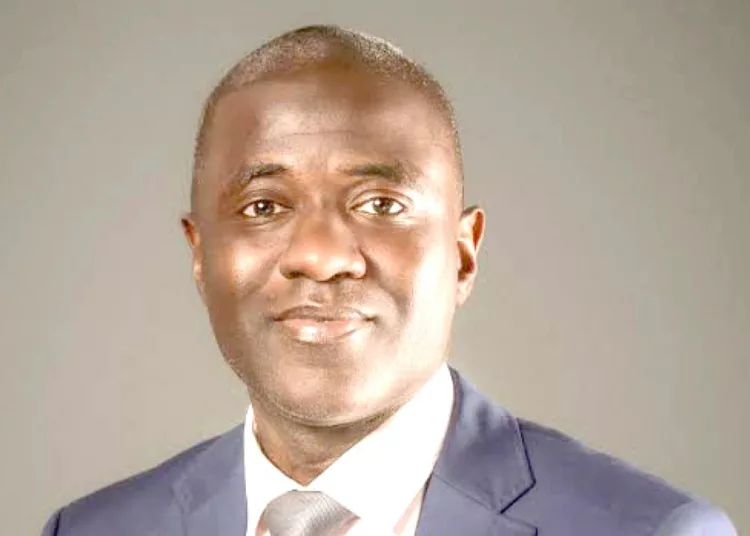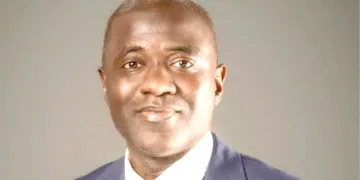The media space was recently awashed with suggestions by critical stakeholders on how the federal government can achieve the ambitious 90,000km Fibre Project.
Their recommendations were coming on the heels of the fact that the Nigerian Communications Commission (NCC) recently revealed that over 200 access gaps in the telecom sector have left over 40 million Nigerians without access to telecommunications services.
To bridge the infrastructure gap in the country, however, the Minister of Communications, Innovation, and Digital Economy, Dr. Bosun Tijani, recently declared that the government had approved the creation of a Special Purpose Vehicle (SPV) to deliver an extra 90,000km of fiber optic cable to supplement current connectivity and provide internet access to everyone in Nigeria.
The minister stated that the SPV would construct the extra fiber optic coverage needed to increase Nigeria‘s connectivity backbone from its existing coverage of roughly 35,000km to a minimum of 125,000km.
Tijani continued by saying that the initiative would also contribute to a 70 per cent rise in internet penetration in Nigeria and a 60 per cent decrease in internet access costs.
But stakeholders in the telecommunications industry have forewarned that the Federal Government’s plan to deploy 90,000 kilometers of fibre optic cables across the country will face several obstacles, especially from state governments, that might truncate the project if…..
According to them, without addressing the current issue of Right of Way charges, multiple taxation, and levies, which are under the control of state governments, the project which is to be implemented through a SPV would be an exercise in futility.
The stakeholders spoke during the Sixth Edition of the Policy Implementation Assisted Forum (PIAFO) in Lagos, which was a focus on Nigeria’s renewed strategic agenda for digital economy.
They stressed the need to ensure the successful implementation of the project which was announced recently by the Federal Government to complement existing connectivity for universal access to the internet across Nigeria and provide the Nigerian digital economy with the backbone infrastructure it needed.
Addressing Obstacles
Presenting a paper on the topic, ‘Harmonizing Nigeria’s Fibre Deployment Strategies for Effective Implementation’, the executive director of Broadbased Communications, Mr. Chidi Ibisi, said while the government’s SPV initiative is a good plan that could help the country bridge its current digital infrastructure gap, the government would need to address current challenges.
“The issues of high cost of Right of Way (RoW), destruction of fiber by road construction companies and vandals all need to be addressed for this new SPV initiative to be successful,” he said.
Highlighting some of the challenges telecom operators face when deploying infrastructure, the group chief operating officer of WTES Projects Limited, Mr. Chidi Ajuzie, said the biggest challenge to fibre cable laying in Nigeria is the informal RoW by hoodlums in states.
“For states, a formal right of way is set and some states are adopting it but the informal side of the right of way is where the complexity has come today. If I’m trying to lay fibre in some communities here in Lagos, the first thing that happens is the so-called land owners (omo onile) come out and a different set of people will keep coming from one street to another and they charge you. How do we achieve adequate broadband infrastructure in this kind of situation?” he said.
States Taking Ownership
to the chairman of the Association of Licensed Telecommunications Operators of Nigeria (ALTON) Engr. Gbenga Adebayo, for the 90,000 kilometres fibre project to succeed, the state governments have to take ownership.
“For the project to succeed, I think the governments at sub-nationals should take ownership. This issue of state governments seeing right of way as IGR should be a thing of the past. We can’t talk about the digital economy on one side and the government is seeing those who provide the services as sources of revenue.
“The government has always come up with good policies, but the implantation, particularly when they are tested far afield, is the biggest problem. Governors will go to Abuja and say ‘in my state, I will give the right of way free of charge.’
“When you go to such a state, they may give you the right of way for zero or one Naira, but they will give you developmental levy, education levy, state impact levy, ecosystem levy. When you add all of these together, it is more than the right of way charges. So, who is playing who?” he said.
Making vital contributions at the forum, the chief executive officer of Open Access Data Centre (OADC) Dr. Ayotunde Coker, stressed the need for the fibre project to be executed by the private sector even as the World Bank is expected to fund it with up to $3 billion. According to him, “the World Bank can put money into the government but it needs private sector partnerships as the execution engine and that‘s what we‘ve been pushing in Africa.
“The key thing is that when the World Bank puts the money in, it should engage the private sector, figure out the policies that it needs to do and enable the private sector to execute them effectively and make it as open as possible. With that, they can achieve what they are trying to achieve.”
He further stressed that for the success of the project, Nigeria should learn lessons of what didn‘t work in the past, to achieve the new broadband penetration targets with the fibre range that is required.
“Meaningful broadband is what we need, rather than just a huge set of megabits per second implementation. We need superhighway fibres. We need the distribution of these backbone that allows us then to fan out,” he added.
He further urged state governors to be part of the project by providing an enabling environment for infrastructure roll-out, adding: “if you are a state governor and didn’t participate in it, the state won‘t grow and it‘s going to impact your state.”
Earlier in his opening address, the convener of PIAFo, Mr. Omobayo Azeez, said the conference was to create a midpoint dialogue platform for digital economy stakeholders across both the public and private divides to brainstorm, exchange perspectives, clear grey areas, harmonize thoughts and create a sense of collective responsibility towards accelerating our collective prosperity through technical efficiency.
The event focused on Nigeria’s renewed strategic agenda for digital economy. According to him, the new digital economy blueprint of the federal government does not only sustain existing policy directions and targets, “it also challenges us on the possibilities of attaining new frontiers with a view to “Accelerating Our Collective Prosperity through Technical Efficiency” which is the theme of the summit.
NCC Reassures
Meanwhile, the executive vice chairman of NCC, Mr Aminu Maida, has assured that it will reduce the gap of unconnected Nigerians in rural areas from 61 per cent to 20 per cent by 2027.
Maida who was represented at the conference by the assistance director, Policy, Competition and Economic Analysis Department of the Commission, Mrs. Freda Bruce-Bennett, said the commission planned to achieve the objective through smart infrastructure sharing and optimisation, innovative licences and rural intervention.
According to him, NCC would also implement smart policies to reduce the infrastructure gap in the rural areas.
On building a more prosperous and inclusive economy, Maida said: “NCC will implement more policies to increase Nigeria’s tech talent pool. We will create a supportive environment for innovation, ensure robust infrastructure, unlock investment in critical sectors and stimulate economic growth.”




